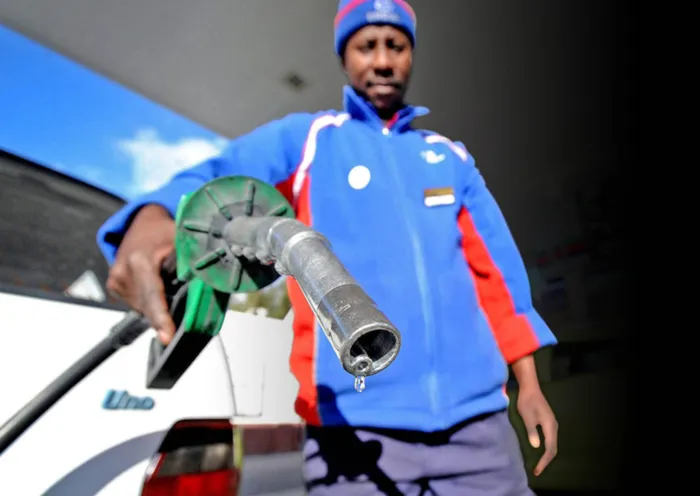
Cape Town 010912 Petrol prices are set to increase by 93c by Wednesday 05 September 2012. picture : neil baynes Cape Town 010912 Petrol prices are set to increase by 93c by Wednesday 05 September 2012. picture : neil baynes
Johannesburg - South African motorists will get further relief on petrol prices when the Department of Energy announces its monthly adjustment on Friday.
Domestic fuel prices are hiked, or cut, on a regular basis to keep them in line with a basket of international oil products. The average daily overrecovery – the difference between the price local consumers are paying and the basket price – has averaged about 23c a litre. On Thursday the daily (as opposed to the average daily) overrecovery was 47c.
The price of 95 octane petrol in Gauteng has already fallen from a peak of R13.55 a litre in August to R13.30 this month, on lower oil prices and a stronger rand. The local currency strengthened, from a worst level of R10.40 to the dollar in August, to trade below R10 for most of this month. Declining fuel prices saw petrol inflation fall from a year-on-year 23 percent in August to 12.8 percent last month, according to data from Statistics SA.
As the price of the benchmark Brent crude oil slid last week from about $110 a barrel on Tuesday to $107 on Friday – $10 below the August peak – the prospects of a favourable local price adjustment improved.
The global backdrop could allow continued moderation in oil prices in the weeks ahead. Bloomberg reported comments on Opec, by Oil Movements, which focuses on the tanker market. It said if exports and oil demand remained at current levels, “by Christmas, you’re looking potentially at six months of serious surplus”.
Sapa-AP quoted a report last week from the Energy Information Administration saying that US oil inventories rose by 5.2 million barrels the previous week, “a possible symptom of subdued demand and overproduction. The rise in stockpiles followed a 4 million barrel increase in the previous week”.
And if negotiations between the US and Iran bring an end of sanctions against that country’s exports, further supplies of crude oil will reach global markets. But the situation in the Middle East is volatile and geopolitical risks are not predictable.
A continued global economic recovery with improvements in manufacturing should stimulate demand for oil.
But structural factors are at work that could put a lid on price rises in the longer term. The think tank Chatham House recently published a report by energy analyst Paul Stevens which identified shale gas production in the US and “demand destruction” as developments that could create challenges for Opec. The report explained “demand destruction” was different from reduced demand as the result of economic recession. “(In the case of reduced demand) when the recession is over, oil demand returns. However, in the case of demand destruction it is lost forever.”
Stevens said the situation was similar to the 1981-86 period that “culminated in the dramatic 1986 oil price collapse”. - Business Report
